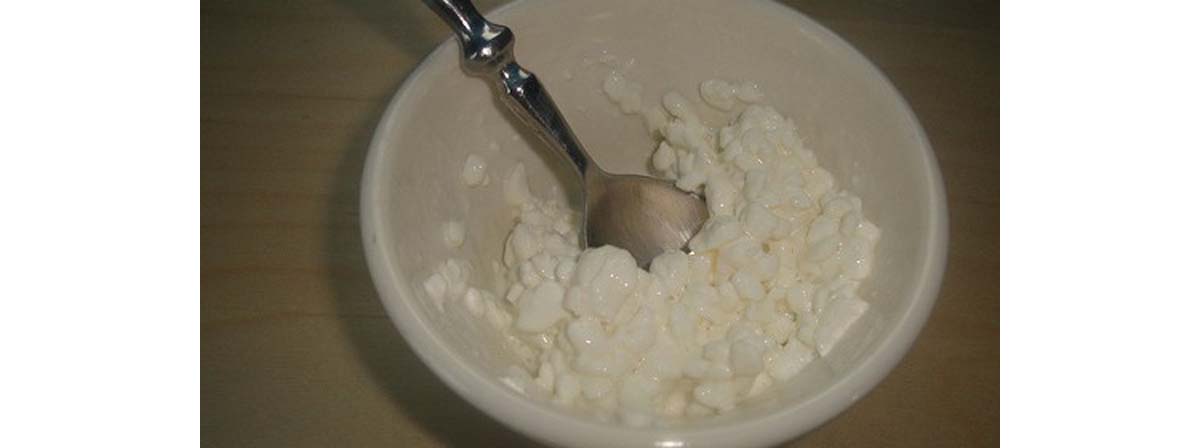Table of Contents
Dr. Budwig's diet was based on her personal observation that people who had cancer who consumed more foods that contained linoleic and linolenic acids, the n-6 essential fatty acids found in flaxseed and other plant seed oils, tended to live longer with cancer.

While modern commentators often label the n-6 essential fatty acids as "proinflammatory" and therefore "bad," it was commonly recognized at the time that the process of inflammation is also essential in cancer recovery.
The immune system, after all, fights infection with inflammation. Macrophages break up cancer cells by releasing inflammatory substances. Particularly at the end of an era in which hundreds of millions of people faced food shortages and even starvation, it was widely understood that even "bad" essential fatty acids are just that, essential in the diet, and should be consumed in moderate amounts along with their "good," anti-inflammatory counterparts.
The least expensive and most available source of both "good" and "bad" essential fatty acids in Budwig's time in Germany was flaxseed oil. This simple seed oil contains both n-6 and n-3 fatty acids. It doesn't do any good, however, for the body to regulate inflammation unless it also has all the amino acids it needs to make proteins that become enzymes, hormones, cell regulators, and newly restored tissues. The easiest way to get protein in a time when meat was scarce was to consume cottage cheese.
Vegans may argue, correctly, that plant foods contain all the different kinds of amino acids our bodies ned to make protein, that we just need to eat a large variety of plant foods every day. The problem with eating a large amount of anything when you have cancer, however, is that nausea and vomiting and intestinal problems cause considerable discomfort. Eating small amounts of food of animal origin provides all the amino acids the body needs to make protein without more bulk that the damaged digestive tract and handle.
Dr. Budwig was also one of the first advocates of juicing--although in addition to consumption of essential fatty acids and protein, not instead of it--and supplementation with resveratrol.
And her diet is blissfully simple to follow:
- Consume 45 ml (3 tablespoons) of flaxseed oil every day, and
- Eat 75 grams (a little less than 3 oz.) of cottage cheese every day.
Now that we know that fruit is not actually dangerous for cancer patients--it does not contain the tens of thousands of milligrams of vitamin C that have a pro-oxidant effect, which in any case the digestive tract could not absorb--it doesn't hurt to put the flaxseed oil and cottage cheese in a smoothie. Be sure not to use your favorite fruit for making your smoothie.
Just in case you have a gastrointestinal reaction to treatment, you don't want to make an unfortunate memory of nausea, vomiting, or diarrhea with your favorite food. The blandness of the other two elements of Dr. Budwig's diet minimize the risk of bad food memories during cancer treatment.
In her book Cancer: The Problem and the Solution, Budwig noted that cancer patients who followed her diet for 3 months often saw their tumors disappearing. That seems like a lot to expect from flaxseed oil and cottage cheese. But if you follow Dr. Budwig's directions in your daily diet, you will at least cover two of your most important nutritional bases, and you can spend more time on the other activities that help you get well and help keep your life worth living--at a very small out-of-pocket expense.
- Budwig J. [Cytostatic or cytodynamic control of cancer?].Hippokrates. 1956 Oct 15. 27(19):605-12. German.
- Hübner J, Marienfeld S, Abbenhardt C, Ulrich CM, Löser C. [How useful are diets against cancer?]. Dtsch Med Wochenschr. 2012 Nov. 137(47):2417-22. doi: 10.1055/s-0032-1327276. Epub 2012 Nov 14. German.
- Photo courtesy of Handwerker by Wikimedia Commons : en.wikipedia.org/wiki/File:From_flax_to_linseed_oil..JPG
- Photo courtesy of Chris Corwin by Flickr : www.flickr.com/photos/flickerbulb/161841382/


Your thoughts on this